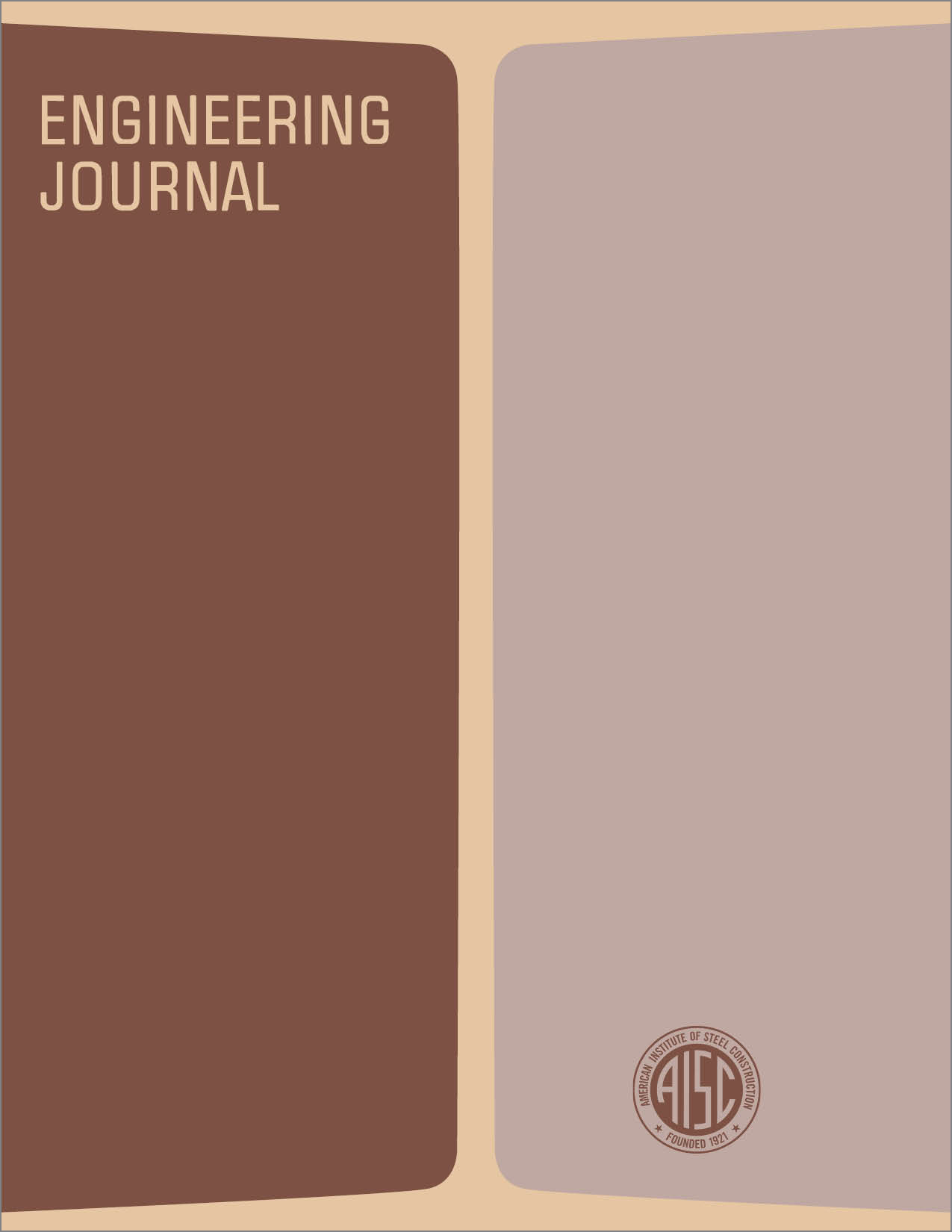Direct Feasible and Optimal Design of Laterally Unsupported Beams
DOI:
https://doi.org/10.62913/engj.v14i2.290Abstract
When a beam is laterally supported throughout its length, the axis of bending is prescribed, and most efficient use of material results if the moment of inertia around that axis is made as large as possible. The only structural restriction is that width-thickness ratios must not become so large as to cause local buckling; of course, architectural and clearance considerations may impose other limitations. Such beams may be rapidly and optimally designed in steel, using either the Section Modulus Tables in the AISC Manual (pgs. 2-7 to 2-20) or the Allowable Uniform Load Tables (pgs. 2-28 to 2- 81). When a beam is laterally unsupported over some of it length further investigation is required, since the beam tends to become unstable and twist or buckle about its weak axis. If the unsupported length is small enough (L less than Lu), design proceeds using the same tables referred to above, although the allowable bending stress may need to be decreased from that allowed for compact sections to 0.60 Fy. Selecting the optimum is still relatively easy.

